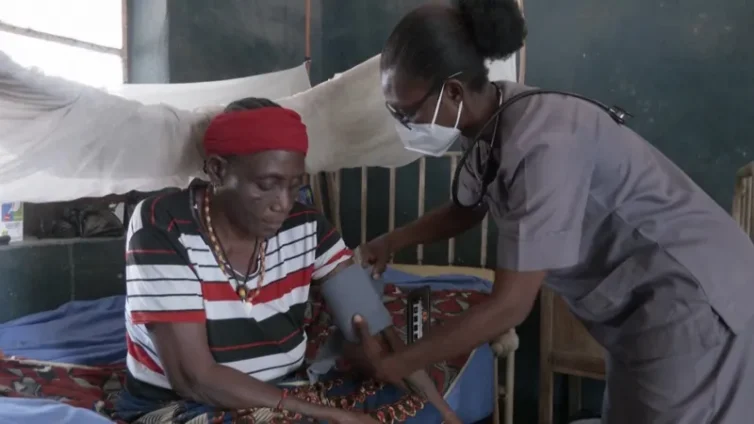People affected by leprosy in Nigeria should be able to get hold of vital drugs to treat the disease for the first time in a year from this weekend, the World Health Organization has said.
The country, which reports more than 2,000 new cases a year ran out of supplies partly because drugs were held up after new regulations were introduced.
The WHO said it had asked Nigeria to briefly lift its new testing policy and it expects the drugs to arrive from India on Sunday.
Leprosy is curable with a combination of different antibiotics, but if left untreated the patients' health can deteriorate with sores and nerve damage that cause deformities.
The treatment can last between six and 12 months.
But because of the lack of drugs in Nigeria, patients have been sent home from hospitals. As the drugs suppress transmission this increases the risk of the disease spreading.
Dr Samimu Msheliza, a public health expert and medical advisor at the Nigerian branch of the Leprosy Mission, highlighted the urgent need for medication.
"We have thousands of newly diagnosed leprosy patients across various cities who are just waiting for this drug," he told the BBC.
"The quicker we have [the drugs], the better, because currently these people are suffering, their transmission is ongoing because they are not being treated," Dr Msheliza said.
The Reuters news agency spoke to one woman at a hospital in Nasarawa state, who said her condition had got much worse since she was not able to get hold of the combination of drugs.
All Awwal Musa's fingers were clawed and her legs discharged pus. "Before last year, my wounds were getting healed but now they are getting worse. The pain is worse," Ms Musa is quoted as saying.
The nerve damage may be irreversible.
Nigeria's drug authority introduced new regulations for medicines aimed at tackling the importation of counterfeit and sub-standard drugs.
In recent years, several medicines have been recalled for failing to meet safety standards.
But the new measures have had an impact on the availability of crucial treatments, including those for leprosy.
Latest Stories
-
Ex NYC Governor Andrew Cuomo under investigation for Covid testimony
1 hour -
OKESS firearm case: Student, stepfather granted GH¢80,000 bail
1 hour -
Ghana throws open its doors with visa processing slashed to 5 days in dramatic policy reset
2 hours -
Italy tightens rules for Italian descendants to become citizens
2 hours -
Trump ambushes S African leader with claim of Afrikaners being ‘persecuted’
2 hours -
Judge says US deportations to South Sudan violate court order
3 hours -
US accepts gifted Qatari plane to join Air Force One fleet
3 hours -
Tottenham beat Man Utd to win Europa League & end 17-year wait for trophy
3 hours -
Clear and strong climate policies are antidote to economic uncertainty – UN Climate Chief
3 hours -
Journalism has become politicised and cheap – KSM laments
3 hours -
Climate Education reaches differently-abled children at Garden City Special School
3 hours -
Mahama’s remarks on Cedi vindicate NPP’s economic legacy – Minority
3 hours -
I lied about having radio experience to get hired – KSM
4 hours -
NLC direct University Senior Staff Association to call off strike
4 hours -
Shelters in crisis: Calls grow for gov’t support as caregivers struggle to protect vulnerable children
4 hours

